"Hummingbird": The Double "Encounter" of Youth | Around the Hearth·Winter Art Literature

"Hummingbird" is South Korean director Bora Kim's first feature-length feature film. The film tells the story of middle school student Eun-hee living with his parents, sister and brother while searching for undiscovered love. All relationships float like an island. At this time, Yingzhi, the only Chinese teacher who can understand and comfort her, appears in Eun-hee's life. With Youngji lost in the 1994 Seongsu Bridge collapse, Eunhee's youth came to an end. Director Jinbao La has a master's degree in film production from Columbia University, and is currently both a director and a screenwriter. "House of Hummingbird" (also translated as "The Distance Between Us and Love") is her first feature-length feature film, which won the 2018 Busan Film Festival Napike Award and Audience Choice Award, and the 2019 Berlin Film Festival New Generation Youth Section Jury Team Award.
It is not unusual for this film to describe the channels of youth. From the spring of 1994 to the collapse of the Seongsui Bridge at the end of the year, the director used a diary-like channel to introduce events and characters that shook Eun-hee's mind from the perspective of Eun-hee, a sophomore girl. The plot mainly focuses on the bumpy family relationship to connect Enxi's entire adolescence life, and the sudden love and friendship make Enxi even more confused. Therefore, in Enxi's life full of repression and constant trial and error, the Chinese teacher Yingzhi's words "acquainted all over the world, how many people can know each other" can resonate with many audiences.
From my point of view, the heroine Eun-hee is floating in a vague sense of growth, and more importantly, "encounters" - these encounters constitute the various relationships that a second-year girl has experienced/experienced for most of the year The multifaceted overlap of the life dimensions of formation/composition - allows us to reflect on the difference between the two different types of "encounters" that the heroine faces in her upbringing, the organized inevitable transformation and the overlap of chance encounters, which can also be said to be The problem of differences inside and outside the structure. Further, this difference refers to the difference in the specific situation generated by the two types of encounters and the unique emotional experience that it brings, as well as the impact on the heroine's life world after the difference appears.
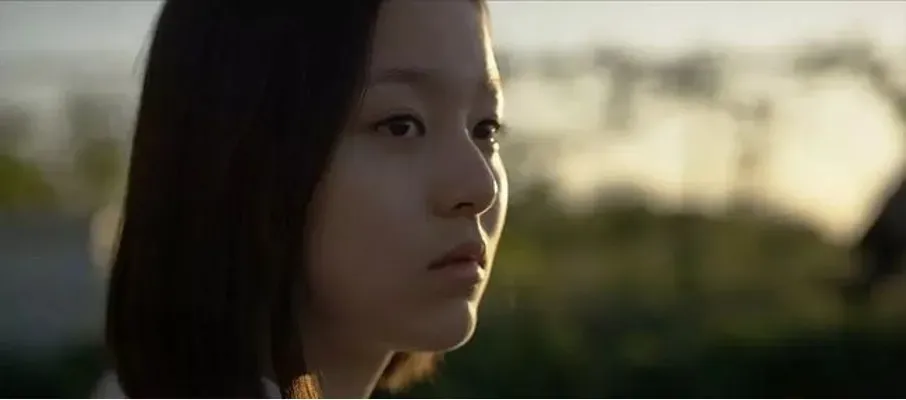
#1 "Organized inevitable transformation": The Dilemma of Traditional Patriarchal Families
The movie opens with a misunderstanding. Eun-hee knocked on the door many times at home but no one answered, and turned from irritability to grievance, but finally found out that he had gone to the wrong floor. I believe that the audience does not need to return to their youth, and this mood coincides with the collapse of contemporary social animals in an instant. The director's design here is intended to point out Eun-hee's underappreciated status at home, not to mention understanding and support from family relationships. At the beginning of the film, through the perspective of Enxi, the side of this ordinary traditional Korean family is torn apart. He has been abused by his brother for a long time but has never been taken seriously. Later, he found that it is less painful to endure silently than to resist. The rebellious sister has been at odds with the family for a long time, and was verbally abused by her father after returning from school late. The parents broke the furniture because of the father's derailment argument, and the next day the wound was covered with tape, but they could still watch TV together. If you look closely, the film also contains hidden waves in the setting, trying to provide another explanation outside the screen. When the parents were watching TV together, there were still fragments of table lamps scattered under the sofa. It's amazing how quickly a home can be repaired so deeply.
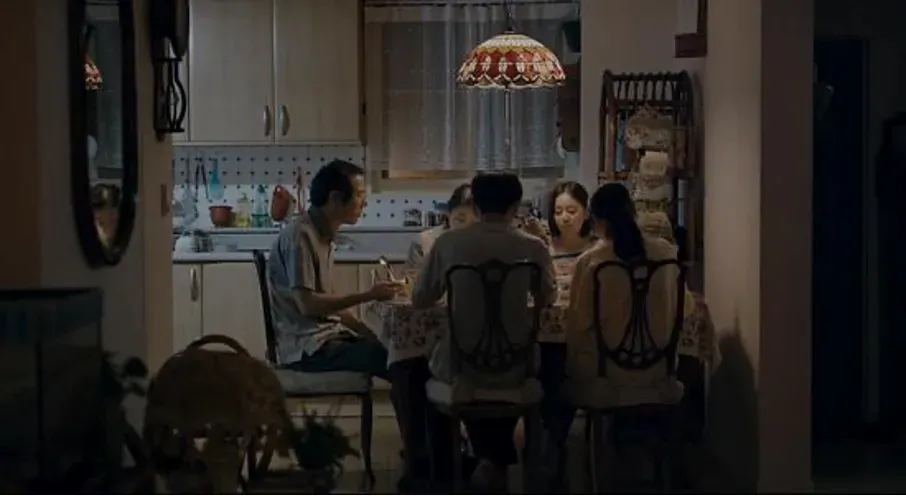
Director Jinbao Ra admitted in the interview that everything that happened to Enxi, a second-year junior high school girl in the film, has the shadow of her adolescence, as well as many life clips obtained through interviews with middle school girls. She grew up in South Korea and then went to study in the United States. The life experience from the other side of the ocean has prompted her to look back on her own growth experience. The protagonist she portrays, Eun Hee, is a girl with ordinary academics and ordinary appearance, but it is this kind of atypical The choice of sex represents the general social situation, which makes the whole work not look like a youth film that deliberately discusses social issues. This work uses a head-up perspective to present the adolescent growth dilemmas that ordinary women need to face at the end of the last century, and avoids the social problems reflected by demonizing these dilemmas to a certain extent. character image. As the plot develops, the director continues to depict the family's life from other perspectives. It turns out that everyone in the family is just living an ordinary life with the strong characteristics of that era on an ordinary track - whether it is A well-educated older brother, a rebellious older sister, or Eun-hee, who has just tasted the world, will help her at the rice cake shop she runs at home during the holidays. The series of combinations that they expertly make, cut and package the rice cakes look so well together. The family workshop, who is busy working for a living, has no time and space to discuss these hidden feelings left in the corner. As the narrative's perspective shifts from the individual to the family, the audience has to re-try to understand Eun-hee's multifaceted situation.
Family relationships cannot be changed or chosen, and are deeply embedded in Eun Hee's upbringing. If "encounter" is the topic of this film that can describe what Enxi has experienced in the past six months like a diary, then you might as well regard family as an irresistible force, the fluctuation of family relationship and Enxi's His growth is one inescapable "encounter" after another, forcing Enxi's way of understanding the world to undergo an organized and inevitable transformation.
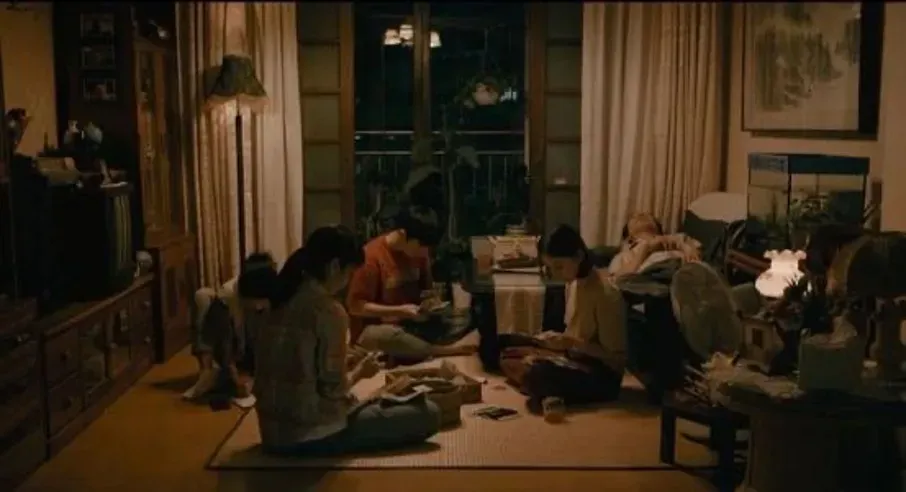
#2 "Random Encounter": Floating love and friendship
In this film, the definitions of various relationships are nuanced. Eun-hee's throes of adolescence are not just the injustices she encountered in a patriarchal-dominated family relationship, she also needs to appreciate the fleeting changes in love and friendship. Summer Eun-hee and her best friend Ji-sook are like glue in their spare time, sweating recklessly on the trampoline behind the school. However, in the theft storm, Ji Sook gave Eun Hee's home address and phone number to protect herself and let her bear the consequences alone. The best friend who had a good time together would also betray her, and even if they reconcile later, the friendship would inevitably have cracks. The hazy friendship of adolescence is like cutting an opening in a sugar maple tree. The sweet juice flows out. Sweetness and wounds coexist. When the next winter is about to pass, it will precipitate into the sweetest syrup.
The second year of junior high school is not enough for her to deeply understand the meaning of a relationship. Enxi and Zhiyuan, a boy she likes, are walking in the boulevards and kissing in the dark stairwell. It seems that she is trying to explore the adult world out of curiosity. Later, the boy left without saying goodbye, and another girl entered her life and did a lot of touching little things in pursuit of her. After a summer vacation, the hazy relationship between the girls also ended without a hitch. From beginning to end, ordinary girls seem to have no right to take the privileges of the game of love and friendship, and all emotions will suddenly disappear over time. These young feelings may not be worth mentioning in the adult world, but they are not meaningless. Our bodies are growing in maturity and psychology, but sometimes we have to bear the excess emotional burden of the past when we look back on our youth.

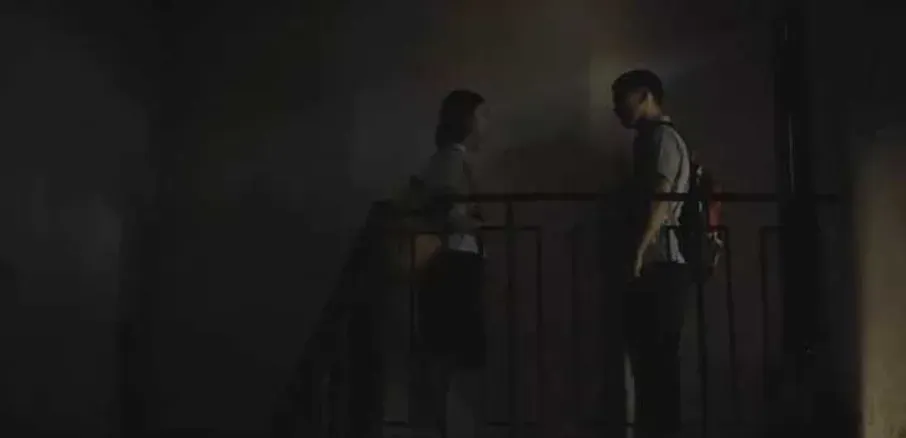
When Eun-hee was accused of stealing and fell into a low point in her life, Ying-chi, a Chinese teacher in a cram school, entered her life. She wrote on the blackboard "I know all over the world, how many people can I know" to comfort Enxi. Yingzhitong is out of tune with the external environment. She seems indifferent, smokes, and the education channel is out of test-taking. She is considerate to Enxi but not overly involved. Jinxibi's indifferent eyebrows and eyes outline the teacher's image is simple but full enough. The two, who were also not understood, gradually came together. Yingzhi and Eun Hee-won both like cartoons and suffered domestic violence. They share a sensitivity to this injustice society and once became bosom friends. Ying-chi's appearance brings hazy beauty to Eun-hee's life full of fractures.
In the second half of the film, the director no longer hides the trauma that Enxi suffered. She used the wound twice to express the complex consequences of this trauma vividly. The first time was when Enxi was slapped by her brother, which caused her eardrum to rupture. The second time Enxi had a tumor operation on her ear, the scar became an umbrella for her to receive a little care at home. This is undoubtedly comical - suffering in silence has become the way to survive, and only the "weak" who are seen can get mercy. At this time, Yingzhi appeared in the hospital, clenched Eun Hee's hand and told her that she must stand up if she was beaten again. Wounds are the result of injury, and it is what Yingzhi conveys to Eun-hee about courage. And in the implicit understanding, this chain of events caused Eun-hee to break the boundaries of how she should deal with injustice. When discontinuous disruption occurs, it may inflict a fundamental trauma, or it may be able to shape a subtle psychological fluctuation without being noticed. Such breakthroughs make a girl at the center of a troubled family and society with authority and power to rethink her body's thresholds and abilities, and make her subsequent "encounter" unpredictable.

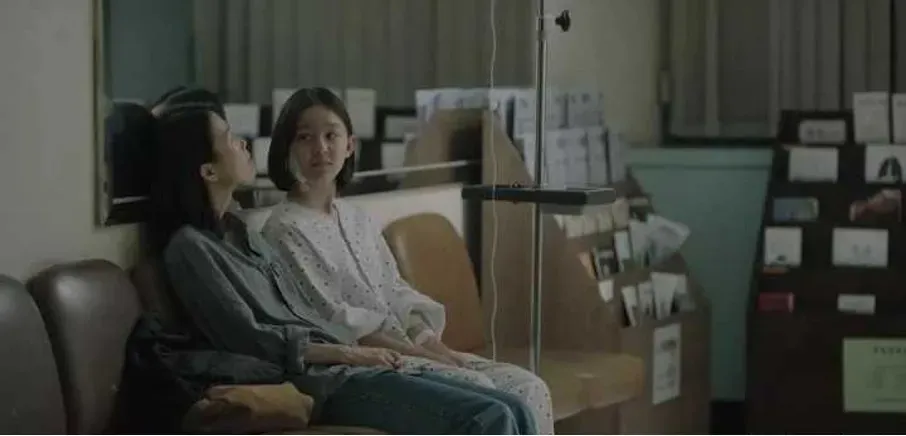
Compared with the family "encounter" that has no choice, the "encounter" full of unknown friendship and love provides another "contact zone" for Enxi, and she can use another face to deal with being in a family. The same experience; furthermore, Eun-hee experiences pleasure, excitement, and turmoil in a volatile and hazy adolescent relationship. She learns so-called "maturity" in this relationship full of uncertainty, constantly pushing the boundaries of her imagination. Thus, these "encounters" are all about the ruptures, surprises, and shocks of difference. The two encounters overlap each other in the film and change over time. Looking back at these encounters, in the final analysis, the film attempts to respond to the ignorant question of growing up through the mouth of Enxi in an unequal situation: how do we endow adolescence with The generosity of moral judgment in relationships? How do we deal with the wandering between certainty and uncertainty as we grow up? How can we still have the courage to challenge injustice in the face of adversity?
I remembered that I had watched "Dog Thirteen" with my friend before, but the other party said that it is difficult to empathize with people who do not have the same experience. The same is true of "Over Spring", its thrilling thrill is a major attraction, and its subtle feelings may be buried. "Hummingbird", once known as "the best youth film of the year", did not forget to describe the new social relations and changes arising from the various encounters of the characters in the film after exposing the problems. When Enxi and Yingzhi were talking at night, Yingzhi comforted Enxi, "When you feel tired and depressed, although you can't do anything, your fingers can still move, and there is still room for turning around in life." They were sitting in Seoul at that time. Next to the shanty towns in the city, on the locked iron gates, there is a banner that says "Even if you die..." to oppose the government's urbanization and demolition, the two life situations seem to echo far away. In the second year of the first year, Enxi was like a hummingbird, trying to fly high, but had to wander through the shaky family, love and friendship to see the rules of the game in the adult world. The appearance of Yingzhi tells Eun-hee that there is another way of living in life. On an unpredictable winter's day, Eun-hee learns that her teacher, Young-ji, was killed in the 1994 crash of the Seongsu Bridge in South Korea. At night, accompanied by her sister, she came to the bank of the Han River, and when she walked there, the film also rendered the color of extreme sadness. At the end of the film, Eun Hee looked at the sketchbook the teacher left her, and silently wrote "Will my life shine one day?" to continue her youthful question.
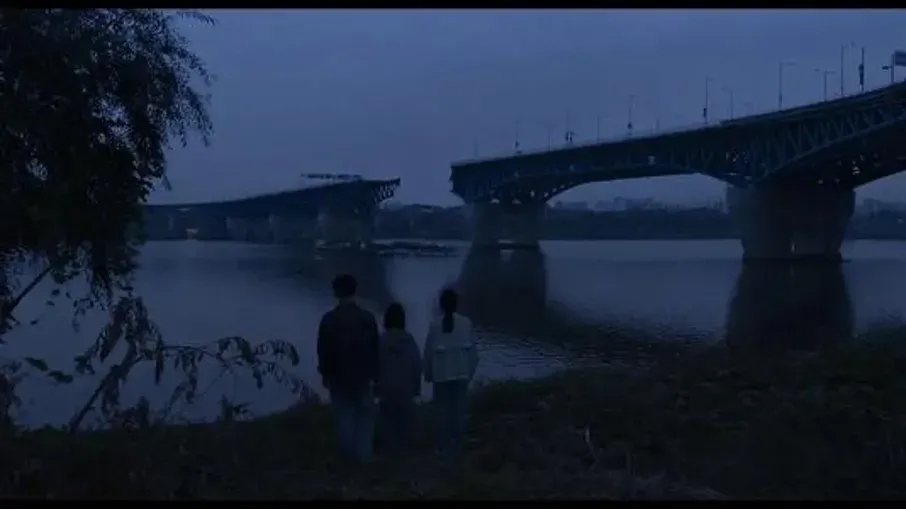
Text | Chen Keyi
Figure | From the Internet
WeChat editor | Li Jingxuan
matters Editor | Marks
Reviewer | Shen Yanming
Around the Fire (ID:weilu_flame)

The pictures in the text are not used for other purposes without consent
You are welcome to comment below the article to exchange discussions with the Ios team and other readers
If you want to know about the fireplace and read more articles, please pay attention to this official account and click the corresponding menu column on the official account page

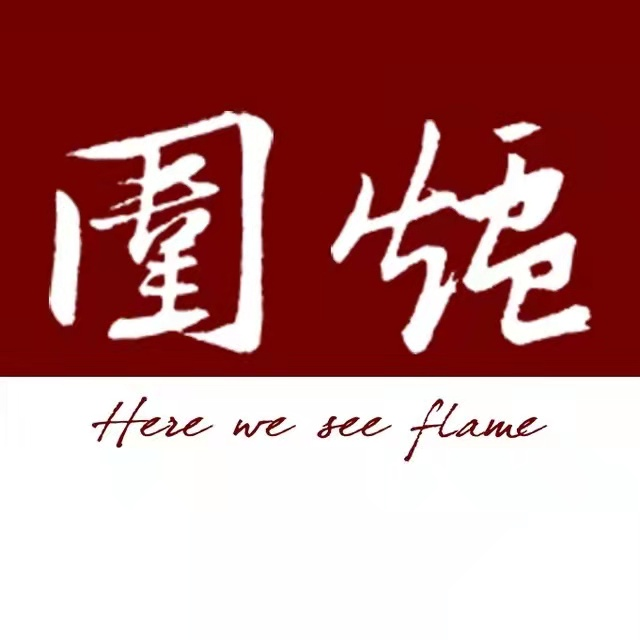
Like my work? Don't forget to support and clap, let me know that you are with me on the road of creation. Keep this enthusiasm together!

- Author
- More